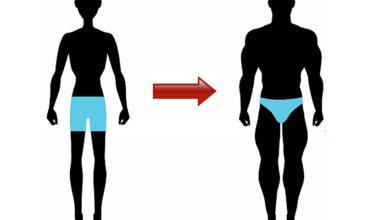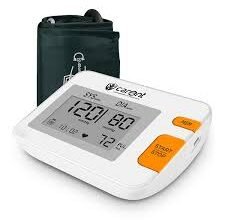Can Blue Light Glasses Really Protect Your Eyes?
Blue light glasses do they really protect your eyes. Discover if they reduce eye strain, improve sleep, and are worth buying.

Blue light glasses have surged in popularity as digital screens dominate our daily lives, but do they actually protect your eyes? These specially designed lenses claim to filter out high-energy blue light emitted by phones, computers, and tablets—potentially reducing eye strain, improving sleep, and preventing long-term damage. Yet, with conflicting opinions from experts and mixed scientific evidence, many wonder if they’re truly effective or just a marketing trend.
As screen time continues to rise, so do concerns about digital eye strain, headaches, and disrupted sleep cycles. While some users swear by blue light glasses, others question whether they deliver real benefits or simply offer placebo relief. This article cuts through the noise, examining how these glasses work, what research says about their effectiveness, and whether they’re worth adding to your eye care routine.
Can Blue Light Glasses Really Protect Your Eyes?
Understanding Blue Light and Its Impact on Vision
Blue light is a high-energy visible (HEV) light with wavelengths between 380 and 500 nanometers, making it one of the shortest and most intense light spectrums. Natural sources include sunlight, while artificial sources encompass LED screens, fluorescent lighting, and digital devices. During the day, blue light helps regulate circadian rhythms, boosting alertness and mood. However, excessive exposure—especially after sunset—can interfere with melatonin production, leading to sleep disturbances.
The primary concern with prolonged screen use is digital eye strain (also called computer vision syndrome), characterized by symptoms like dry eyes, blurred vision, headaches, and neck pain. Some researchers also speculate that long-term blue light exposure might contribute to retinal damage, though conclusive evidence remains limited.
How Blue Light Glasses Claim to Help
Blue light glasses are designed with special coatings or lens materials that filter out a portion of blue-violet light. Some lenses have a subtle amber or yellow tint, while others appear clear but selectively block specific wavelengths. The theory is that by reducing blue light transmission, these glasses can:
Minimize eye strain
Blue light glasses reduce glare and improve contrast, helping ease digital eye fatigue. Pairing them with regular screen breaks further enhances comfort and long-term eye health.
Enhance sleep quality
Blue light glasses help filter sleep-disrupting wavelengths, promoting natural melatonin production when used before bedtime. This leads to faster, deeper sleep and improved circadian rhythm regulation.
Reduce potential long-term retinal stress
Though this claim is still under investigation. Many brands advertise varying levels of protection, typically blocking between 10% to 90% of blue light. However, the effectiveness depends on lens quality and the specific wavelengths filtered.
Scientific Evidence
Research on blue light glasses presents mixed conclusions. Some studies, such as a 2017 report in Ophthalmic & Physiological Optics, found that participants experienced reduced eye strain when wearing blue light-filtering lenses. Another study in Chronobiology International suggested that these glasses could improve sleep quality by mitigating melatonin disruption.
However, not all experts agree. The American Academy of Ophthalmology (AAO) states that there is no substantial evidence that blue light from screens causes permanent eye damage. They argue that discomfort from screens is more likely due to prolonged focus and reduced blinking rather than blue light itself. Additionally, the amount of blue light emitted by devices is far less than natural sunlight, raising questions about whether artificial sources pose a significant risk.
Who Might Benefit from Blue Light Glasses?
Office workers and students
For office workers glued to screens all day, blue light glasses help combat persistent eye fatigue. Students pulling late-night study sessions benefit from reduced glare and better sleep quality.
Gamers and frequent device users
For gamers immersed in marathon sessions, blue light glasses help prevent eye fatigue and maintain visual clarity during extended play. Heavy smartphone and tablet users experience less strain and dryness when these glasses filter out the most intense digital glare.
Nighttime screen users
For those scrolling before bed, blue light glasses help preserve natural melatonin levels by blocking sleep-disrupting wavelengths. They’re particularly useful for night owls who can’t avoid late-night screen time but still want quality rest.
People with light sensitivity or pre-existing eye conditions
like dry eye syndrome. For these groups, blue light glasses may provide relief, even if the effect is partly psychological.
Limitations and Alternative Solutions
The 20-20-20 rule
Every 20 minutes, pause to look at something 20 feet away for 20 seconds – this simple reset prevents digital eye strain. It’s an effortless habit that gives your eyes the mini-breaks they desperately need during screen time.
Adjusting screen settings
Enabling “night mode” or reducing brightness can decrease blue light emission. Blue light glasses are not a universal fix. Their effectiveness depends on lens quality, and cheaper options may offer minimal protection.
Proper lighting
Optimal lighting means balanced brightness – not too dim to cause strain, not too harsh to create glare. Position your light source behind you to avoid screen reflections while ensuring your workspace stays comfortably illuminated.
Artificial tears
These lubricating eye drops provide instant relief for dry, irritated eyes caused by reduced blinking during screen use. Keeping them handy helps maintain moisture and comfort throughout long work or gaming sessions.
Are Blue Light Glasses Worth the Investment?
The answer depends largely on your lifestyle and how your eyes respond to screen exposure. For individuals who spend extended hours in front of digital devices. whether for work, study, or entertainment blue light glasses may offer noticeable relief from symptoms like eye strain, dryness, and headaches. Many users also report improved sleep quality when wearing them during evening screen time, as the glasses help mitigate blue light’s disruptive effects on melatonin production.
Read More: The Science Behind Muscle Recovery: What You Need to Know
Conclusion
While blue light glasses may offer relief from digital eye strain and improve sleep quality for some users, their overall effectiveness remains debated. Scientific evidence is mixed, with some studies showing benefits while others suggest that reducing screen time and adjusting device settings may be just as helpful. If you frequently experience discomfort from prolonged screen use, these glasses could be a worthwhile addition—but they shouldn’t replace healthier habits like the 20-20-20 rule or proper lighting.
Ultimately, blue light glasses are a tool, not a cure-all. Their value depends on individual needs and how they fit into a broader eye care routine. For those who find them helpful, they can provide meaningful comfort—but moderation and mindful screen usage remain the best ways to protect your eyes in the long run. The discussion around blue light glasses highlights the growing need for solutions to digital eye strain, but their benefits remain subjective. While some users experience noticeable relief, scientific backing is still evolving, and experts emphasize that reducing screen exposure is equally important.
FAQs
Do blue light glasses actually work?
They may help reduce eye strain and improve sleep for some users, but results vary.
Can blue light from screens cause permanent eye damage?
Current research suggests that typical screen use does not cause permanent harm, but excessive exposure may contribute to eye fatigue.
Are blue light glasses necessary if I use night mode on my devices?
Night mode reduces blue light, so glasses may offer additional but not essential protection.
Do all blue light glasses provide the same protection?
No, effectiveness varies by brand and lens quality—some block only 10-30%, while others filter up to 90%.
Can I wear blue light glasses all day?
Yes, but taking regular screen breaks is still important for overall eye comfort.











